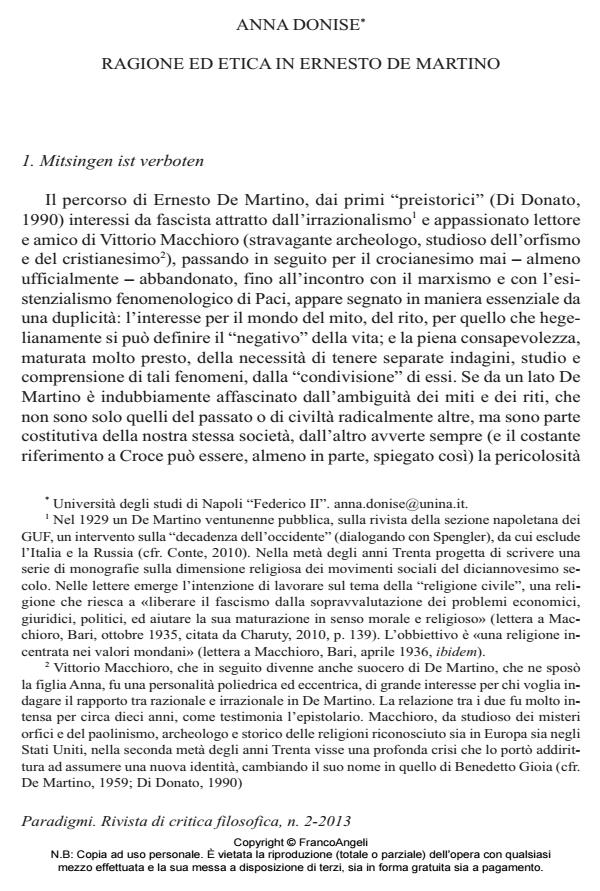Reason and Ethics in Ernesto De Martino
Journal title PARADIGMI
Author/s Anna Donise
Publishing Year 2013 Issue 2013/2
Language Italian Pages 13 P. 79-91 File size 108 KB
DOI 10.3280/PARA2013-002007
DOI is like a bar code for intellectual property: to have more infomation
click here
Below, you can see the article first page
If you want to buy this article in PDF format, you can do it, following the instructions to buy download credits

FrancoAngeli is member of Publishers International Linking Association, Inc (PILA), a not-for-profit association which run the CrossRef service enabling links to and from online scholarly content.
Ernesto De Martino’s outlook seems tainted by some sort of duplicity: on one hand is his interest for a mythical, ritual world emerges, which according to Hegel may be defined as the negative of life; on the other hand, is a full, suddenly matured awareness of the need to keep enquiries, study and comprehension of such phenomena and of how these may be shared as separate steps. The hypothesis we wish to propose in the below pages is that, the theoretical framework afforded by phenomenology, especially in Husserl’s version from his late years, as well as by existentialism (Sartre, Jaspers, Paci) within the lengthy theoretical elaboration which came to a stop with The End of the World, allowed De Martino to deal with such obscure and negative dimension. He does so, however, without renouncing the "postulate of common humanity".
Keywords: Ethics, irrationalism, phenomenology, psychopathology, reason,subjectivit
Anna Donise, Ragione ed etica in Ernesto De Martino in "PARADIGMI" 2/2013, pp 79-91, DOI: 10.3280/PARA2013-002007